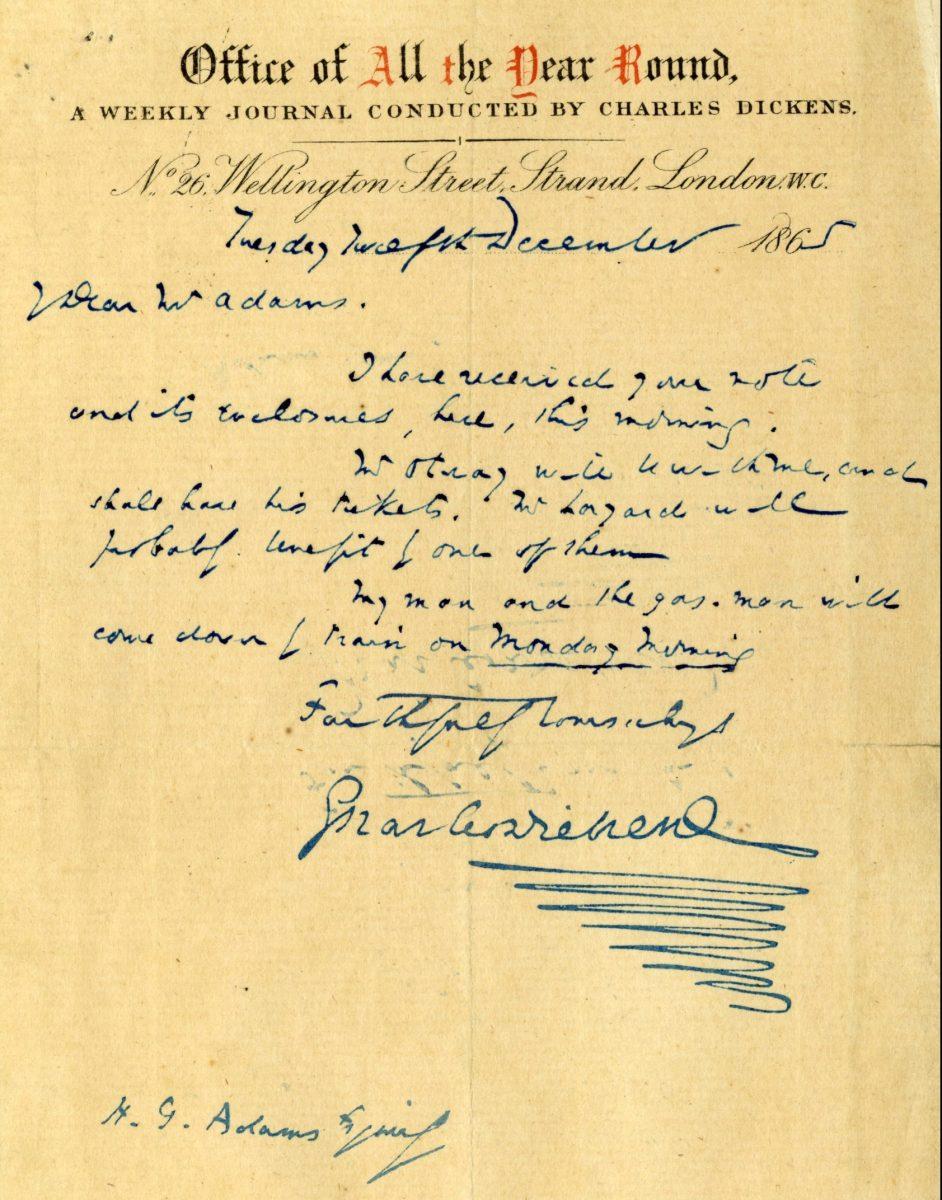A couple of months have gone by since Drake University Archives Associate Benedict Chatelain discovered a letter written and signed by renowned author Charles Dickens.
Chatelain started working for Drake University Archives in July and was set to learn more about the history of Des Moines and Drake when he came across this letter.
“This collection was one that I encountered on my survey and it immediately piqued my interest because one of the first things I saw on there was a journal. From one of these, it’s the Harlan family papers,” Chatelain said.
This specific collection featured a journal from the Harlan family’s journey to California during the gold rush and letters written during the Civil War. The family has been residing in Iowa since the 1830s and donated some of their heirlooms to the Drake Archives. However, what caught Chatelain’s attention the most was a certain framed letter.
“It was framed and sitting with those things,” Chatelain said. “I guess it was the letterhead that first got my attention because it does say a weekly journal conducted by Charles, but if you look at the signature, there’s no way unless you are already familiar (to) say, ‘hey, that’s Charles Dickens.’”
Examining the contents of the letter reveals an exchange between Dickens and Mr. Adams about getting tickets for one of his readings. These set tickets would be delivered to Mr. Otway and Mr. Layard, who were prominent politicians at the time.
“The thing that’s really interesting for us is why it’s in this collection,” said Student Archival Assistant Allie Shambaugh-Miller. “There’s no evidence as to who owned it in the family, how they got it, and we’re still trying to put that puzzle together because it is something that they don’t have a record of.”
That is the main question: How did a letter from Charles Dickens end up in Des Moines, Iowa? The Drake Archives are still trying to answer that question, but they do have a lead.
One of the leads that the Drake archives have was that the collection was donated by the Harlan family. They are currently looking through letters and documents dating back from the 1830s to see if any of the family members had a connection with Dickens.
“It was a family who donated all of their papers, which includes letters, files from their jobs, a lot of photographs,” Shambaugh-Miller said. “The Harlan family has lived in Iowa since the 1800s. The first papers that we have are from 1830 with the family with individuals ranging from the 1830s to the 1970s.”
The archive staff is searching through all of the files to see if there is any connection between the Harlan family and Dickens or whether they were just collectors and purchased the letter.
Until more answers are found, the letter will remain with the Drake Archives for educational purposes for classroom discussions.
“That’s really our goal. Preservation is one piece of our goal but we don’t want the boxes and items to be in there sitting on the shelves. We want people to come in and use them and whether it’s for research or to inspire their curiosity about history,” said Director of University Archives Hope Bibens. “I think that the letter is a really good example of that. It’s something really exciting and a chance for students to come and touch a piece of history.”
Biben’s main goal within the archives is to use history as a form of storytelling that can connect to people today.
“It can be like a window into the past,” Bibens said. “We’re telling the stories of the Drake neighborhood and up Des Moines and Iowa. That’s our mission and our goal is to do more of that, storytelling and digging into our collections and finding things that resonate with students today.”







